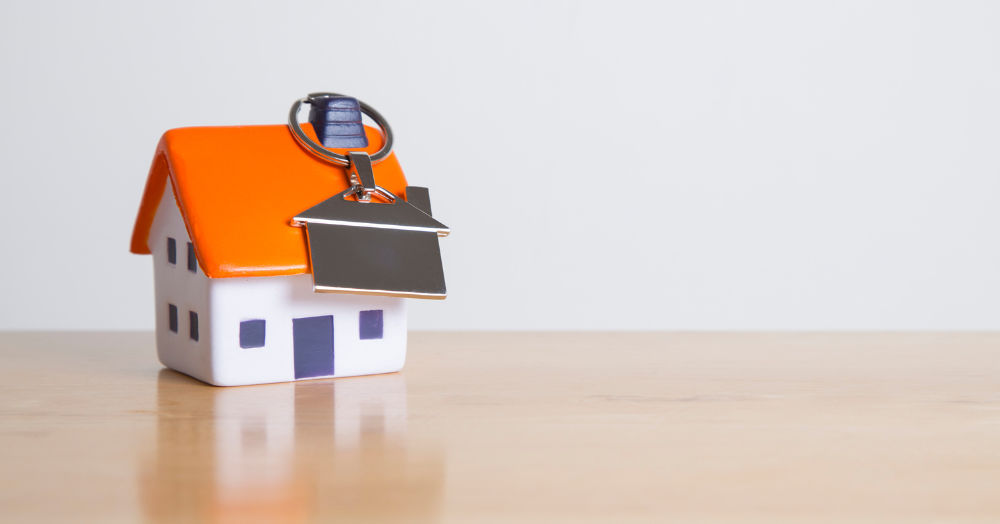Should you sell or find a property to buy first? But what if you get a buyer and have nowhere to move to? What if you find the one and can't sell your house before someone else comes in and snaps up your dream home?
It's a common worry for homeowners who want to move. Should they try to sell their property before looking for somewhere new, or should they find the new home of their dreams before trying to sell their own?
If you opt to sell your home first, you run the risk that you can't find a new home that suits your needs. But, if you find the home of your dreams first, you might not be able to sell your house quickly enough before someone else swoops in and buys it first. So, what should you do?
We all romanticise moving into a new home. We dream of a property that perfectly suits you and your family's needs, addressing all of the issues you have in your current home. Your new home will be large enough, have the perfect outside space you've been dreaming of, and be in the right location for the kid's schooling and your commute to work. In the words of Mary Poppins, it will be practically perfect in every way.
Studies show that we ponder moving houses for up to a year before actually putting the moving wheels in motion. During that year, we find faults with our current home that we vow to change when we move somewhere new. This will inevitably mean that we will develop a checklist of things that we want and things that we definitely do not want in the new property.
And we all know that moving house is a stressful process, consistently known as one of the top 3 most stressful experiences a person can go through - it's little wonder then that we only move when we really have to after we have outgrown our property and the need has really arisen. We wait until the reasons that you thought about moving in the first place are really screaming at you; the issues are reaching an untenable point, and you have no choice but to move.
So we plan. We prepare as best as possible for the perfect move and try to orchestrate the process as much as possible. And you must get this juggle right.
Most people don't have the luxury of buying a new property to move into and then worrying about selling that property afterwards. This would require you to have the funds to buy a new home without releasing the equity of your current one. Another option could be that you will sell your property and move into a rented house for a few months whilst you purchase your new home; clearly, this is filled with issues - the rental market is experiencing a huge shortage of available properties, which has led to rising monthly rental prices and a struggle to find available properties. Not to mention, the rental payments each month are 'dead money'; after years of making monthly payments as a contribution towards paying off your mortgage, this could be a stumbling block for many people unable to commit themselves to a substantial monthly cost that has no upside, other than the roof over your head.
But what can you do if you don't have a way of splitting the sale of your property and the purchase of a new one? You're left with no alternative but to simultaneously juggle the sale and purchase. This leads us to our issue. Suppose you find the property of your dreams that encourages you to finally take the plunge and put your home for sale. In that case, you will be forced to be proactive as you run the risk that someone else may buy it before you are in a position to do so.
This could add further pressure, and you may end up panicking and offering your home for sale for a lower price to secure the property quickly. Alternatively, suppose you try to sell your property before looking at those available. In that case, you won't end up disappointed, but what if, when the time comes, you can't find a property to buy? Will you have to sell your home with no plan of where you are moving to? Could you and your family end up homeless? Or will you have to withdraw from the sale, costing you and your buyer lots of money in the process?
Ultimately, there is no right answer; there is only what is right for you. The way to work through this process is flexibility and depends largely on your requirements for a new property and your appetite for risk. If you're looking for a property that can be found relatively easily, you don't need to pin all your hopes and dreams on one address. In this scenario, when you find a buyer, plenty of properties will be on the market for you to choose from. But if your needs are somewhat particular, you might want to find a property first. It makes sense to get your home on the market because you will only be buying something if you get yours sold. But keep one eye on the market.
To get your property on the market, you will need to arrange a valuation with one of our expert property valuers. While you are arranging this, our team can register your interest in a property you might like to buy, allowing you to receive updates as new properties are listed on the market so you can keep an eye on what is available at all times.
Get in touch with us today to get the ball rolling.

